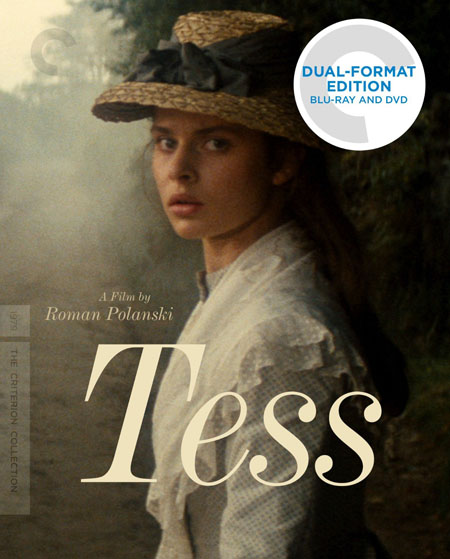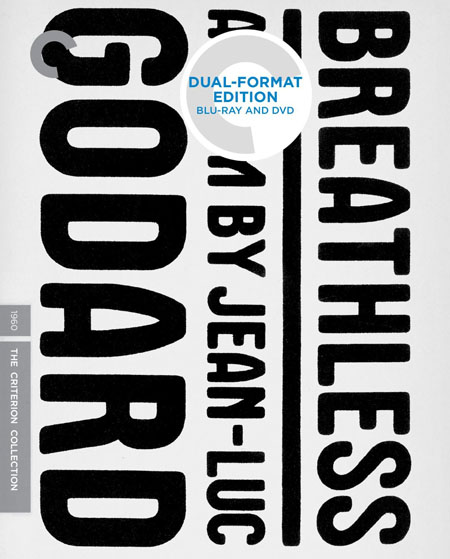
TWO EUROPEAN GEMS
By Raymond Benson
February
is a good month for The Criterion Collection. Last week we reviewed the
company’s restored Blu-ray/DVD dual format release of Foreign Correspondent. Coming quickly on its heels are two more
excellent releases on this red carpet of home video labels.
First
up—Tess, directed by Roman Polanski.
This 1979 picture—released in the U.S. in 1980 and nominated for Academy Awards
(Best Picture, Best Director, and Best Score) and winner of three (Art
Direction, Cinematography, and Costumes) is a scrumptious, beautiful depiction
of Thomas Hardy’s Tess of the
D’Urbervilles. It is a very faithful adaptation, although several scenes
from the book are left out or shortened. Still, the film is nearly three hours
long—but don’t let that scare you, it’s never dull. I have to confess that I
fell in love with Nastassja Kinski when I first saw Tess in a Manhattan cinema. She remained my onscreen heartthrob for
over a decade as a result! Kinski is strikingly beautiful, and it is this
beauty that carries her extremely subtle performance through the character’s
difficult emotional upheavals. Kinski’s Tess is shy, vulnerable, introverted,
and naive—until she is the victim of sexual violence. Then the character is
forced to mature, and rather quickly. When it’s all over, on reflection, one
realizes the actress never relied solely on her looks. Superbly supporting
Kinski are Peter Firth as Angel, the man who at first rejects her but then
rescues her from the likes of Leigh Lawson, as the sexual predator Alec.
This
was Polanski’s first feature after fleeing from the U.S. under, ahem,
disturbing criminal charges. He made the film in France, where he took up residence.
His late wife, Sharon Tate, had given him the novel back in the Sixties, and
he’d promised that he would one day make the film for her. As we all know, Tate
didn’t survive that decade. Ten years later, Polanski kept his promise (the
film is dedicated “To Sharonâ€). It is certainly a love letter to her and his
cinematic audience. Since the story involves what the poster tag line read as
“She was born into a world where they called it seduction, not rape...†one
wonders if the picture might have also been Polanski’s way of apologizing for
his crime.
At
any rate, Tess can be listed among the
director’s best pictures. It is gorgeously rendered, exquisitely acted, and,
like Kubrick’s Barry Lyndon, is one
of the most visually-stunning films of its era.
The
new 4K digital restoration—supervised by Polanski himself—looks fantastic on
Blu-ray. Several extras document the making of the film, including Once Upon a Time...Tess (a piece from 2006),
three programs featuring interviews with Polanski, Kinski, Lawson, producer
Claude Berri, costumer Anthony Powell, and composer Philippe Sarde, and others.
A 1979 interview with Polanski on The
South Bank Show is revealing, and there is also a documentary shot on
location for French television during the film’s production. The package comes
with both Blu-ray and DVD disks.

Another
wonderful release from Criterion in February—Breathless, directed by Jean-Luc Godard. Released in 1960, this is
simply one of the most important entries in modern film history. While it
wasn’t technically the first French New Wave film, it was the one that truly
ushered in this unique movement with significant critical and commercial impact.
It really is the quintessential French New Wave film, for it serves as a
checklist of stylistic traits:
low-budget, handheld camera, improvised dialogue, existential theme, and
radical editing. The French New Wave took the Neorealism of the forties and
made it arty. It’s the cinema equivalent of jazz.
The
story is paper thin: Jean-Paul Belmondo plays the studly petty criminal who has
a short-lived romance with a beautiful American girl working in Paris (Jean
Seberg) until he can’t hide from the authorities any longer. As the film
follows the couple over a course of a few days, Godard plummets deep into the
characters’ psyches as we follow them through a series of seemingly trivial
events, but which in fact are extremely intimate. It’s all very striking, and you
can still feel the revolutionary
punch the movie had in its day. In truth, Breathless
is perhaps Godard’s most accessible movie. Honest, it really is a love story—just a quirky, edgy
one.
Both
actors are marvelous. They are both frankly sexy individuals, and Godard makes
sure you get that. With Breathless, Belmondo
defined his image as the handsome cad, while it solidifed Seberg’s career as an
art-house darling; it’s tragic that her tenure in the motion picture business
was sadly cut short. She is simply radiant in the film.
Criterion’s
new release is a dual Blu-ray/DVD package. All of the extras from the label’s
previous DVD edition of the film are ported over to this one. The only
difference is the magnificently restored, high-definition digital
transfer—approved by director of photography Raoul Coutard—that makes Breathless a must-have in any serious
film collector’s library.